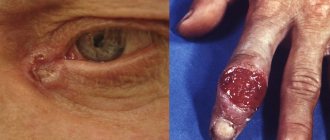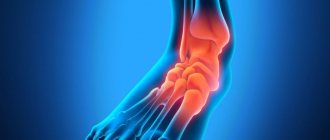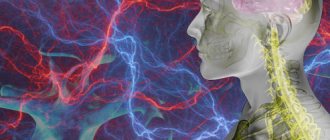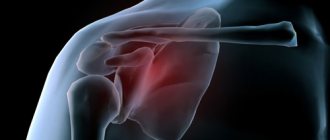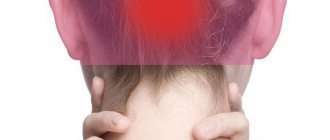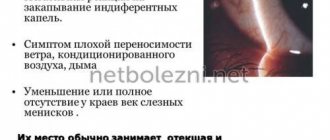Neurologists and otorhinolaryngologists at the Yusupov Hospital often have to consult patients whose main complaint is tinnitus.
Patients describe their sensations in different ways. The noise may resemble ringing, squeaking, buzzing, crackling, rumble, buzzing, rustling, hissing. Its intensity also varies.
Often tinnitus is combined with symptoms such as dizziness, nausea, unsteadiness of gait, darkening of the eyes, and headaches.
Let's look at the most common causes of tinnitus.
Ringing in the ears causes in ENT diseases
Diseases of the ear, nose and throat are the most common causes of tinnitus. A patient who begins to be bothered by this symptom should first contact an ENT doctor.
The main causes of tinnitus in otolaryngology:
- Exudative otitis media is an inflammation of the middle ear in which fluid accumulates in the cavity. The disease is manifested by decreased hearing, a feeling of congestion, and fullness inside the ear. When moving the head, tinnitus occurs.
- Damage to the eardrum. Causes: ear injury, skull fracture, damage from foreign bodies, various objects during ear cleaning, loud sound (for example, during an explosion). If the eardrum is damaged, severe pain, hearing loss, tinnitus, and a feeling of congestion occur.
- Otosclerosis. A disease in which the condition of the bone capsule of the inner ear and the mobility of the auditory ossicles in the middle ear are disrupted. Patients are concerned about hearing loss, tinnitus, dizziness, increased fatigue, and irritability.
- Meniere's disease. Associated with increased fluid pressure in the inner ear. Ringing in the ears, dizziness, impaired sense of balance, nausea and vomiting, sweating, and decreased blood pressure occur.
- Twitching of the muscles of the middle ear. These small muscles regulate ear sensitivity by changing the tension of the eardrum. With their frequent contractions, tinnitus occurs. Even a person nearby can hear it: the sound resembles the chirping of grasshoppers or cicadas.
Who to contact and what to do?
In some cases, diagnosing the cause of the noise is quite simple, but sometimes a lengthy diagnostic search will be required. First of all, it is necessary for an ENT doctor, audiologist, or otoneurologist to carefully characterize the noise, taking into account all its criteria, to study its dynamics, frequency, and localization. The patient must listen to the head with a regular phonendoscope. There is nothing funny about the doctor listening to the head with a phonendoscope, since in many cases one can hear myoclonic muscle twitching, contraction of the muscles of the soft palate, or vascular noise, indicating the presence of various shunts and anastomoses.
The second important examination in addition to visiting an ENT doctor is an audiological examination. This includes recording an audiogram, conducting impedance measurements, studying auditory evoked potentials, and conducting electrocochleography. It is very important to undergo tests, both biochemical and general clinical, ultrasound examination of the vessels of the head and neck, transcranial Doppler sonography. Sometimes an MRI of the brain and cervical spine, an X-ray of the neck with rotation tests are required. A patient with suspected pathology of the ENT organs may, according to indications, undergo microotoscopy or endoscopic nasopharyngoscopy in order to thoroughly examine all accessible organs.
Whistling in the ears in neurological diseases
Neurological pathologies cause tinnitus along with ENT diseases. Let's consider the most common causes of tinnitus, which fall under the competence of neurologists.
Ringing in the ears due to arterial hypertension and hypertensive crisis
With a significant increase in blood pressure (more than 140/90 mm Hg), blood flow to the inner ear becomes uneven. As a result, the nerve endings inside it are excited, and tinnitus occurs. With arterial hypertension, this most often occurs during a hypertensive crisis - an attack of a sharp increase in pressure.
Other manifestations of hypertensive crisis:
- headache;
- dizziness;
- dyspnea;
- pain in the heart area;
- nausea and vomiting;
- convulsions;
- disturbance of consciousness.
During a hypertensive crisis, the patient requires emergency assistance. It is necessary to reduce blood pressure as quickly as possible, otherwise its jump can lead to myocardial infarction, stroke and other serious complications.
If arterial hypertension is accompanied by a chronic disorder of cerebral circulation, then the patient is almost constantly bothered by tinnitus.
Ringing in the ears due to cerebrovascular accident
The most common cause of impaired blood flow in the vessels of the brain is atherosclerosis. This is a disease in which cholesterol plaques form on the walls of the arteries, partially or completely blocking their lumen.
Other causes of cerebrovascular accident:
- arterial hypertension (the main cause of which is also often atherosclerosis);
- increased blood viscosity and blood clot formation;
- diabetes mellitus (with this disease, the vessels of the brain, eyes, and kidneys are primarily affected);
- consequences of traumatic brain injury;
- intracranial tumors, hemorrhages.
The main symptoms of chronic cerebrovascular accident: headaches, dizziness, tinnitus, flashing “spots” before the eyes, increased fatigue, drowsiness, impaired memory and attention. Constant oxygen starvation does not leave its mark on the brain. Nerve cells gradually die, which over time can lead to the development of dementia.
The effect of increased intracranial pressure on tinnitus
Tinnitus as a result of increased intracranial pressure occurs with hydrocephalus, intracranial tumors and hemorrhages, after traumatic brain injuries and infections (meningitis, meningoencephalitis).
Headache and tinnitus - characteristic manifestations of increased intracranial pressure - usually occur in the morning, after a person has been in a horizontal position for a long time. During the day the symptoms disappear. The vertical position of the body helps the excess amount of intracranial fluid flow away and its pressure decreases.
Diseases of the cervical spine
The vertebral arteries, vessels that play an important role in the blood supply to the brain, run along the cervical spine on the right and left. They are not just located on the sides of the spine, but pass through holes in the lateral processes of the cervical vertebrae.
Often, pathological changes in the spine - inflammation, displacement of the intervertebral disc, bone growths that form on the vertebrae - lead to impaired blood flow in the vertebral arteries and neck pain. Blood flow to the head decreases. The brain and other organs experience oxygen starvation.
This condition is called vertebral artery syndrome. Its main manifestations:
- constant burning pain in the back of the head, temples, which intensifies after sleeping in an uncomfortable position, traveling by transport;
- hearing loss and tinnitus;
- blurred vision, “fog before the eyes”;
- dizziness, loss of balance when turning the head suddenly;
- loss of consciousness;
- sleep disturbances, the patient does not feel sleepy and rested, in the afternoon there is severe fatigue and drowsiness.
Noise in the ears is a signal of a tumor
Acoustic neuroma is a benign tumor that leads to tinnitus and other symptoms: decreased hearing on one side, pain and impaired movements of the facial muscles of half the face, and speech impairment. For acoustic neuroma, the doctor prescribes surgical treatment or radiation therapy.
Many intracranial tumors lead to impaired cerebral circulation and increased intracranial pressure. Therefore, tinnitus can also be one of the symptoms of such pathologies.
Multiple sclerosis
This is a chronic disease that most often occurs between the ages of 15 and 40 years. All nerve fibers in the human body are covered with a special myelin sheath. It is necessary for the normal transmission of nerve impulses. In multiple sclerosis, the myelin sheath is destroyed, resulting in slower neuromuscular transmission.
The symptoms of multiple sclerosis are varied. In some people, the disease manifests itself in the form of numbness in a certain part of the body, for example, a limb, while in others severe paralysis develops, including breathing problems.
One possible symptom of multiple sclerosis is tinnitus.
Depression and neuroses
Under certain conditions of the nervous system, the hearing organ becomes hypersensitive to sounds and becomes irritated. This is often caused by depression, neuroses (neurasthenia, hysterical neurosis), and nervous breakdowns. The patient comes to see a doctor and complains of constant tinnitus, but during examination and examination no objective abnormalities are revealed.
For psychogenic tinnitus, psychotherapy and appropriate medications are prescribed.
Taking medications for tinnitus
Some medications are ototoxic—they can harm the nerve endings in the inner ear and cause tinnitus. This side effect is most pronounced with the following drugs:
- antimalarials (quinine) and some antibiotics (for example, streptomycin);
- anti-inflammatory drugs (including aspirin);
- antipsychotics (haloperidol);
- antidepressants;
- digitalis preparations;
- furosemide
If you begin to experience tinnitus while taking one of these medications, you should stop taking it and consult a doctor immediately.
Only a doctor, based on the results of the examination and examinations, will determine what disease led to the occurrence of tinnitus. It is necessary to begin proper treatment of this symptom for any pathology as early as possible - this will help eliminate its root cause and prevent serious complications.
The Yusupov Hospital employs experienced neurologists, therapists, cardiologists, and has all the necessary equipment. This allows us to provide patients with modern, high-quality medical care.
Preductal MR
"Preductal" is one of the most effective drugs for the treatment of tinnitus with a quick effect and prolonged action. The active substance of the drug is trimetazidine dihydrochloride. Only a doctor should prescribe “preductal” for tinnitus, and he will select the optimal dosage of the drug. The first positive results when taking Preductal are noticeable within two to three days. The drug improves cellular nutrition and improves blood circulation in the brain. The only disadvantages of the drug are its high price and the fact that Preductal cannot be purchased in all pharmacies.
Preductal MR
Serdix LLC, Russia
For adults, Preductal MR is indicated for the symptomatic treatment of stable angina with insufficient effectiveness or intolerance to first-line antianginal drugs, as well as in ENT practice, the drug reduces the frequency of development and intensity of tinnitus, and reduces the likelihood of its relapse.
Expands the perceived sound range in case of perceptual deafness. from 353
564
- Like
- Write a review
Read also: 10 safest sedatives The best natural sedatives.
What preventative measures will be required?
To protect yourself from such an unpleasant phenomenon as pulsation in the ear, you need to take the following preventive measures:
- Maintain good ear hygiene.
- Use headphones with caution.
- Organize daily walks.
- Protect your ears from infections.
- From autumn to spring, wear a hat and scarf.
- Protect yourself from drafts and hypothermia.
- Give up bad habits.
Following these recommendations will help you maintain your health.
Why "Movement"
- The clinic is located in the Vyborg district of St. Petersburg, near the Ozerki metro station.
- Reception is carried out by qualified doctors who have many years of experience in treating various neurological diseases and problems of the musculoskeletal system.
- Comprehensive treatment programs developed by our specialists, in the vast majority of cases, make it possible to avoid surgical intervention even in very complex clinical situations.
- Prices for medical services are affordable.
Treatment methods
A patient who seeks help undergoes an examination, on the basis of which he is prescribed treatment. There are 2 groups of methods: conservative and surgical. Preference is given to measures that include medicinal, physical, and psychotherapeutic methods of influence.
To reduce noise, patients are prescribed vasoactive, nootropic drugs, vitamins, antidepressants, tranquilizers, muscle relaxants, anticonvulsants, anesthetics, antihistamines, vasodilators, diuretics, homeopathic remedies, etc.
Physical methods include:
- phototherapy;
- electrotherapy;
- faradization;
- iontophoresis;
- ultrasound;
- mechanotherapy;
- reduction;
- reflexology.
Tinnitus Retraining Therapy (TRT) and cognitive behavioral psychotherapy are used as psychotherapeutic techniques.
Surgical tactics are used in case of significant pathological changes in the auditory organ.
Possible complications
Tinnitus may appear without warning, disappear spontaneously, or become chronic.
In addition to constant pulsation, a person may suffer from stress, sleep problems, anxiety or depression. These conditions can cause further deterioration of the heartbeat. Thus, a person finds himself in a vicious circle.
Therefore, it is important to contact a specialist who will help cope with the problem.
If the cause of tinnitus is a heart condition, if left untreated, the normal functioning of the heart can be affected, leading to serious complications over time, including:
- heart failure;
- heart attack;
- sudden cardiac arrest, death.

